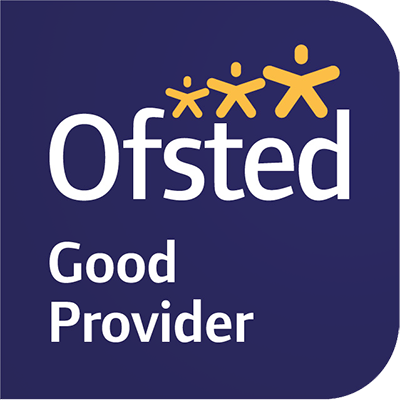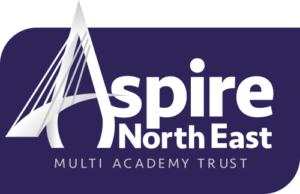Music Curriculum Overview
Learning Journey
• Click Here to View our Music Learning Journey. Knowledge Organisers
- Musical ability and understanding – including listening to, reviewing, and evaluating across a range of historical periods, genres, styles, and traditions
- Encounters with performance opportunities within lessons regularly – including using music technology, learning musical instruments, and learning to use their voices
- Working with accessible online compositional and arrangement software
- Critical analysis of music of both contemporary and historical sources – understanding how music is created, produced, and communicated through its inter-related dimensions (Musical Elements)
Key Stage 3 Curriculum
Our Key Stage 3 Curriculum:
We know that students who read well achieve well. As such, all subject areas are committed to providing regular opportunities to read extensively, including the use of our SMART Reader model within lessons.
We also provide regular opportunities for students to read as part of a research process.Download the full policy at the link above for a full break down of learning for each Term.
Key Stage 4 Curriculum
Our Key Stage 4 Curriculum:
At Key Stage 4 students, who opt to study further, currently follow the Pearson BTEC Performing Arts (Tech Award)
Download the full policy at the link above for a full break down of learning for each Term.
Academy Aim
Here at Sandhill View Academy, we aim to securely equip all our students for life beyond school as successful, confident, responsible, and respectful citizens. We believe that education provides the key to social mobilityand our curriculum is designed to build strong foundations in the knowledge, understanding and skills which lead to academic and personal success. We want our students to enjoy the challenges that learning offers. And ultimately, we want students to ‘Know More, Do More and Go Further’
Our aims are underpinned by a culture of high aspirations. Through developing positive relationships, we work towards every individual having a strong belief in their own abilities so that they work hard, build resilience, and achieve their very best.
Intent
Music is all around us, a universal language which embodies the highest forms of creativity. It is the soundtrack to our lives and connects us in an ever-changing world, bringing colour to the experiences that shape us. We aim for our learners to make music, think musically, and become more musical as they grow into well-rounded young adults. All students are given dedicated time in lessons to make music and think more critically about it, reflecting on their progress and their instrumental skills as they develop. The curriculum includes formal teaching through subject areas, assemblies, and extracurricular activities. We regularly review content to ensure we continue to meet our curriculum aims. The Music curriculum & wider extra-curricular activities are planned to enable all students to develop knowledge and skills in the following areas:The Music department ensures that students can develop skills that are useful in the world of work including teamwork, communication, creative thinking, speaking, listening, and problem-solving skills. The promotion of the importance of the creative careers and its impact in the local economy is included in lessons and information is displayed throughout the department, we also have one week per year where we focus on Careers in Music within our lessons ensuring the students understand just how vital the skills they learn and display within creative subjects are later in life, as well as in other subjects within the academy.
The British values of democracy, the rule of law, individual liberty, and mutual respect of those with different faiths and beliefs are taught explicitly and reinforced in the way in which the school operates. Students are taught to maturely debate and discuss contemporary issues. Students are aware of how musicians and composers explore identity and are respectful of others’ views, particularly in our world music topics.Sequence and Structure
Our curriculum covers Key Stage 3 (years 7, 8 and 9) studying Music, and optional Key Stage 4 (years 10 and 11) studying Performing Arts.Literacy:
We know that students who read well achieve well. As such, all subject areas are committed to providing regular opportunities to read extensively. In music we provide opportunities for students to read as part of connect activities and within the classroom environment with a larger focus on this particularly with music/production research and independent topics. We also aspire for our students to use ambitious vocabulary and plan to use Frayer models within lessons – our aim for Tier 3 music vocabulary is high right from Year 7 as any KS4 course is very subject specific vocabulary heavy. Using music vocabulary regularly in lessons, whether in written work, or verbal discussion, consistently helps our learners become more musical and think more musically. All curriculum areas use literacy end point document which details yearly end points for reading, writing and oracy to ensure consistent literacy skills embedded across the curriculum.Skills Builder
We are also explicitly embedding transferable ‘Skills Builder’ skills such as problem solving, aiming high and teamwork to prepare our students for higher education and employability skills for the future. This year in Music we will focus on Creativity, Teamwork and Listening. Our young people have demonstrated that taking part in creative activities both in and outside of the classroom can not only boost their self-esteem, but they can also help others. We encourage our young people to teach skills to others and work together to learn about diverse cultures and events through discussion and group work. Projects from Year 7 upwards have been designed to creatively explore a variety of materials but also to refine skills to take pride in not only their performance and practical work, but their written and theoretical work, also.
How does our Curriculum cater for students with SEND?
Sandhill View is an inclusive academy where every child is valued and respected. We are committed to the inclusion, progress, and independence of all our students, including those with SEN. We work to support our students to make progress in their learning, their emotional and social development, and their independence. We actively work to support the learning and needs of all members of our community.
A child or young person has SEN if they have a learning difficulty or disability which calls for special educational provision to be made that is additional to or different from that made for other children or young people of the same age. (CoP 2015, p16)
Teachers are responsible for the progress of ALL students in their class and high-quality teaching is carefully planned; this is the first step in supporting students who may have SEND. All students are challenged to do their absolute best and all students at the Academy are expected to make at least good progress.
Specific approaches which are used within the curriculum areas include:
- Differentiated and feedback tasks outlined clearly on the board or in teaching resources
- A variety of techniques, processes and progression are offered when working with instruments to enable all students to make progress
- Group work and discussion tasks to develop confidence in presentation and literacy skills
- Various instruments clubs and performing arts activities are on offer at lunchtimes and after school to encourage all learners to apply their knowledge and skills outside of their set lesson times
How does our curriculum cater for disadvantaged students and those from minority groups?
As a school serving an area with elevated levels of deprivation, we work tirelessly to raise the attainment for all students and to close any gaps that exist due to social contexts. The deliberate allocation of funding and resources has ensured that attainment gaps are closing in our drive to ensure that all pupils are equally successful when they leave the Academy. More specifically within the teaching of Music, we;
- Aim to provide not only a space to teach technical skills in music performance, composition and theoretical understanding; but also, a space where young people feel safe and comfortable to express themselves musically, whilst also developing empathy and understanding to others, and their situations. Our subject encourages students to think creatively and develop transferable skills such as critical thinking, teamwork, and problem-solving skills to equip them for life beyond the classroom
- Work to identify barriers, interests, and what might help each pupil make the next steps in learning using more accessible performance pieces
- Provide targeted support for under-performing pupils during lesson time, such as targeted questioning, live marking and feedback, and strategic rigorous seating
- Use strategies best suited to addressing individual needs
- Ensure there are opportunities for students to make use of resources and know of the extra-curricular activities on offer to further develop their skills and knowledge of music
- Have recently launched fully funded instrument lessons taught by specialist peripatetic teachers. These have been offered to all students – ensuring everyone has access to musical learning regardless of advantage
How do we make sure that our curriculum is implemented effectively?
- Staff have regular access to professional development/training to ensure that curriculum requirements are met.
Effective assessment informs staff about areas in which interventions are required. These interventions are delivered during curriculum time to enhance pupils’ capacity to access the full curriculum. - Curriculum resources are selected carefully and reviewed regularly.
- Assessments are designed thoughtfully to assess student progress and to shape future learning.
- Assessments are checked for reliability within the department and across the Trust.
How do we make sure our curriculum is having the desired impact?
- Examination results analysis and evaluation, reported to the senior leaders and the local governing body to ensure challenge
- Termly assessments-analysis and evaluation meetings
- Lesson observations
- Learning walks
- Book scrutiny
- Regular feedback from Teaching Staff during department meetings
- Regular feedback from Middle Leaders during curriculum meetings
- Pupil surveys
- Parental feedback
- External reviews and evaluations




